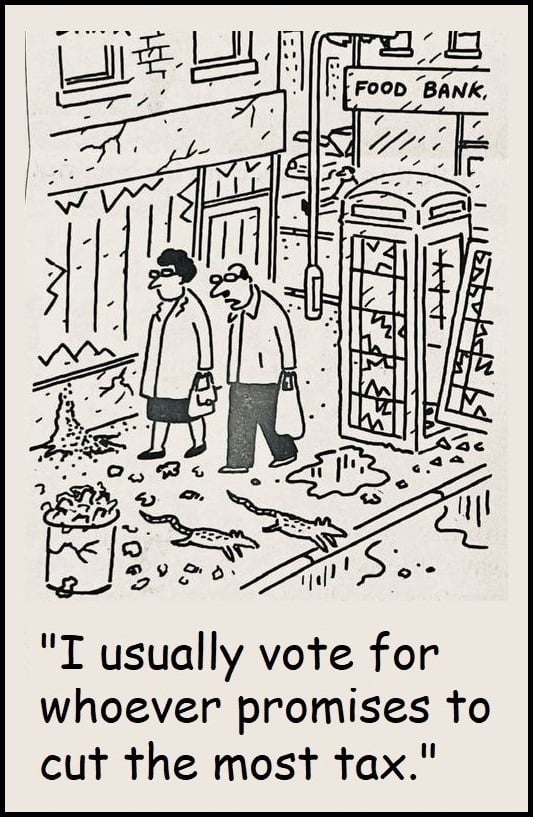AMUSING, INTERESTING, OUTRAGEOUS, or PROFOUND
This is a page for anything that's amusing, interesting, outrageous, or profound.
♦ ♦ ♦
RULES
① Each player gets six cards, except the player on the dealer's right, who gets seven.
② Posts, comments, and participants must be amusing, interesting, outrageous, or profound.
③ This page uses Reverse Lemmy-Points™, or 'bad karma'. Please downvote all posts and comments.
④ Posts, comments, and participants that are not amusing, interesting, outrageous, or profound will be removed.
⑤ This is a non-smoking page. If you must smoke, please click away and come back later.
Please also abide by the instance rules.
♦ ♦ ♦
Can't get enough? Visit my blog.
♦ ♦ ♦
Please consider donating to Lemmy and Lemmy.World.
$5 a month is all they ask — an absurdly low price for a Lemmyverse of news, education, entertainment, and silly memes.
view the rest of the comments

What makes you argue this universally (if I understand you correctly)? For example, if the cost efficiency of a service is increased, then it would be able to provide the same quality of service at a reduced cost. In that case, would it not make sense to reduce taxes?
If you make the gigantic assumptions that the population doesn't change, the use of services doesn't change, the price of services only goes down, and the quality of services doesn't change, then yeah, your very narrow scenario would result in reduced taxes.
But taxes going down year over year is a bad thing. Taxation is giving back to the community that enables you to gain so much. Giving less and less means others have to work harder. Selfishness is a key component of every civilization's fall throughout history. Don't be a petulant child. Pay your fucking taxes.
That depends on how the taxes are being used by the government. For example, if taxes are used to bail out corporations, is that giving back to the community?
Why? What would be the alternative that you would prefer? I would think that the only preferable alternative would be taxes staying the same YoY (which, imo, is only viable in an ideal context), as the alternative to static taxation rates would be an increase, and an increase in taxation is, imo, far more divisive.
I think it's important for me to clarify the way that I'm viewing (ie my opinion) some of the things that you said: If the population changes, then the demand on the service could change — eg if the population increases, then the demand on the service could also increase by some factor which would also increase the service's cost by some factor (not necessarily assuming a linear relationship). A change in population could also create a change in tax revenue in the same fashion. What's important here is how I'm viewing the interaction between those 3 things: subject to real world conditions, I don't think it's entirely out of the realm of usefulness to analyze a scenario in which the increase in population could cause a balanced effect on the service — ie the net increase in revenue will perfectly cover the cost of the increase in demand of the service. So, to put all that together, if one is to make that assumption of balanced response, it doesn't matter how the population changes; if the services operating efficiency increases, then the service's cost-per-person will decrease. Essentially what I'm trying to say is that the meme is possibly a faulty generalization.
By "work harder" do you mean others pay more in tax, or do you mean that the providers of the service have to increase their productivity?